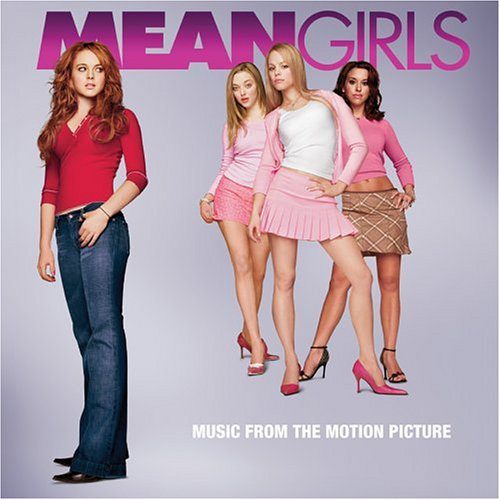Sukanya reviews Mean Girls, about a naive, home-schooled girl who infiltrates high school’s popular clique, sparking a hilarious yet insightful journey of self-discovery, exclusively for Different Truths.

Act 1: Setting the Stage
In the desolate landscape of mindless teen comedies, “Mean Girls” emerges as a beacon of intelligence and humour. Tina Fey wrote the screenplay for the movie “Mean Girls,” which director Mark S. Waters has brought to us. The story centres around Cady Heron (played by Lindsay Lohan), a high school junior who was homeschooled in Africa. As her parents return to the United States for work, Cady finds herself navigating the treacherous waters of Evanston Township High School. High school’s social hierarchies and cliques leave her academic brilliance in the shadows due to her naiveté.
Cady quickly befriends Janis (Lizzy Caplan) and Damian (Daniel Franzese), who become her guides to the school’s social landscape. They caution her about the “Plastics,” a group of the most well-liked girls that includes Gretchen (Lacey Chabert) and Karen (Amanda Seyfried) as well as Regina George’s (Rachel McAdams), the manipulative leader. In order to gather information for their plan to overthrow Regina, Cady infiltrates the Plastics with Janis’ encouragement, setting the stage for the typical high school power struggle.
Act 2: The Conflict Unfolds
As Cady gets deeper into the Plastics’ world, she becomes more entangled in their schemes and manipulations. The screenplay by Tina Fey, based on Rosalind Wiseman’s nonfiction book “Queen Bees and Wannabes,” deftly explores the dynamics of high school cliques with sharp wit and keen observation. Fey’s portrayal of Ms. Norbury, a relatable and likable math teacher, adds a touch of authenticity and heart to the film. The interplay between Ms. Norbury and Principal Duvall (Tim Meadows) provides additional comic relief, with Meadows delivering a standout performance through subtle gestures and impeccable timing.
Cady’s transformation from an innocent newcomer to a key player in the high school social game is both humorous and insightful. The film avoids many clichés typical of teenage comedies, opting for more realistic and relatable scenarios. When Cady hosts a party that spirals out of control, the aftermath is handled with a refreshing realism. Similarly, her crush on Aaron (Jonathan Bennett) and the ensuing complications are depicted with a grounded approach, steering clear of over-the-top dramatics.
Act 3: Resolution and Reflection
The climax of “Mean Girls” sees Cady confronting the consequences of her actions and the realization of the toll that the high school power play has taken on her and those around her. Lindsay Lohan’s performance anchors the film, bringing a blend of vulnerability and strength to Cady’s character. Her journey from innocence to experience is portrayed with a nuanced touch, ensuring that she never devolves into a mere caricature.
The film culminates in a satisfying resolution that underscores its core message: the importance of authenticity and the futility of superficial popularity. While “Mean Girls” does not aim to dismantle the high school clique system entirely, it does offer a hopeful perspective on the value of genuine connections and self-acceptance. The final scenes, with Cady and her peers moving towards a more inclusive and understanding school environment, leave audiences with optimism.
“Mean Girls” stands out not only for its humour and sharp dialogue but also for its deeper commentary on high school life and the pressures faced by teenagers. Tina Fey’s screenplay skillfully balances comedy and social insight, making it a film that resonates with audiences of all ages. While it may not single-handedly change high school culture, “Mean Girls” offers valuable lessons on the importance of being true to oneself and the pitfalls of succumbing to peer pressure.
With strong performances from its cast, particularly Lindsay Lohan and Rachel McAdams, “Mean Girls” remains a beloved and influential teen comedy that continues to entertain and enlighten viewers years after its release.
Pictures from IMDb






 By
By
 By
By
 By
By